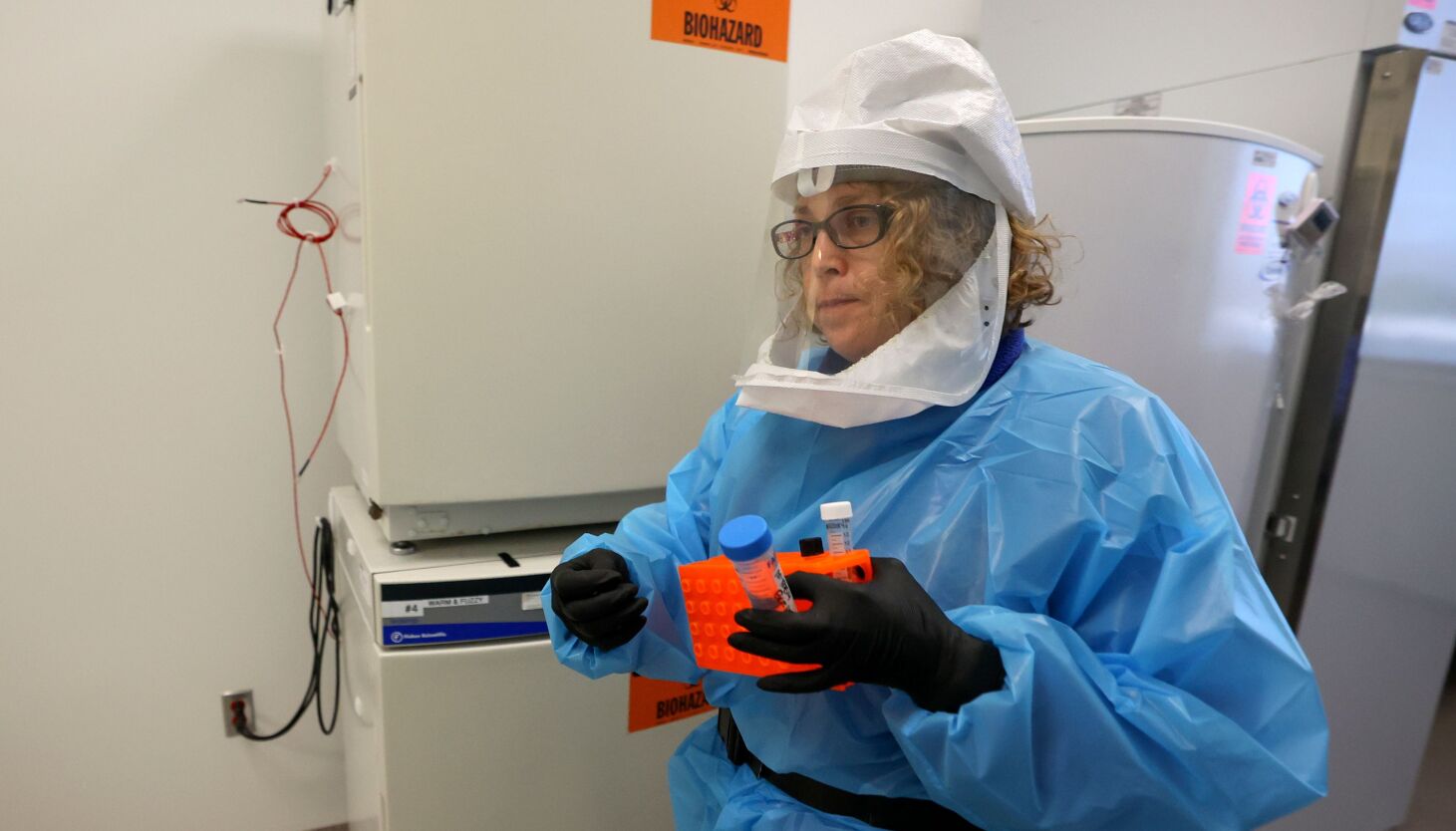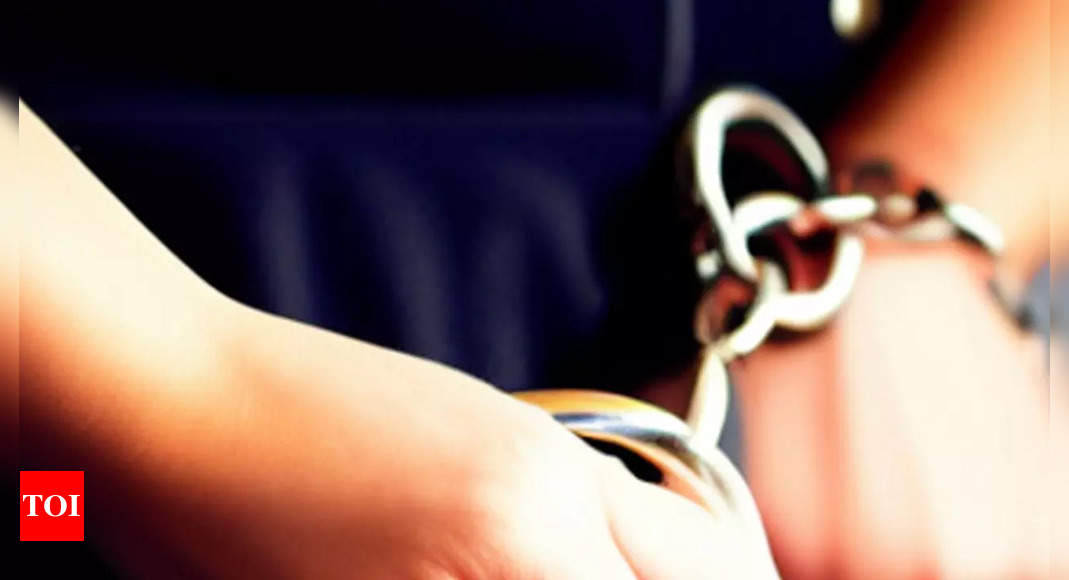Although monkeypox is primarily affecting men who have sex with men during the current outbreak, public health officials stress the virus can be spread to anyone — even children — in a number of other ways.
Transmission of the virus — which usually begins with a rash that develops into fluid-filled pustules that eventually scab over and fall away — does require “close, personal, often skin-to-skin contact,” according to the Centers for Disease Control and Prevention.
“This is an infection that’s spread by skin-to-skin contact and it appears to be pretty significant skin-to-skin contact, not just brushing against another person,” said Dr. Leisha Nolen, state epidemiologist with the Utah Department of Health and Human Services.
The CDC says the ways monkeypox spreads include:
Direct contact with the rash, scabs or body fluids from someone with monkeypox. Touching clothing, bedding, towels or other fabrics, objects and surfaces used by someone with monkeypox.Contact with respiratory secretions.
Besides sexual activity, the types of intimate contact that spread the virus include:
Hugging, massage and kissing.Prolonged face-to-face contact.
Someone with monkeypox can spread the virus from the time symptoms start until the rash has fully healed and is replaced by a fresh layer of skin, the CDC says, noting the illness that also can include flu-like symptoms typically lasts two to four weeks.
Monkeypox and children
Monkeypox has been reported in 17 children and adolescents up to 15 years old by the CDC, as of Aug. 21, but their risk of monkeypox is described by the CDC as low at this time. Schools are being advised to keep up with “everyday operational guidance that reduces the transmission of infectious diseases,” including disinfecting.
“The CDC has emphasized that monkeypox can affect anyone who has close contact with people who have monkeypox, and this includes children,” CDC spokesperson Kristen Nordlund recently told NBC’s “Today” show in an email.
“Monkeypox spreads through close skin-to-skin contact, which, in the case of children, could include holding, cuddling, feeding, as well as through shared towels, bedding, cups and utensils,” Nordlund said, adding the virus can be transmitted during pregnancy to a fetus, or to a newborn through close contact during and after birth.
Nolen said monkeypox “certainly is the kind of thing that could be spread if somebody was playing with a child, and they had skin contact because they were wrestling or tickling. It certainly could happen. Right now, it is predominantly being spread in the men who have sex with men community.”
That could change, the state’s epidemiologist said, “when people have other interactions.” For now, in Utah and the rest of the world, she said while there are “sporadic” instances of woman or children getting monkeypox, it’s the sexually active age group of men who make up the “vast, vast majority” of cases.
In early August, federal authorities allowed children to receive the monkeypox vaccine authorized only for adults after they were exposed to a day care worker in rural Illinois who tested positive for the virus, raising concerns about its increased spread.
As of Friday, there have been more than 17,500 cases nationwide, and 92 in Utah. None of Utah’s monkeypox cases are in children or adolescents, and so far, all have involved men engaged in intimate contact with men, according to Nolen, adding the state is targeting vaccinations and prevention messaging to men who have sex with men.
“People who have multiple intimate contacts who aren’t in monogamous relationships but might be exposed to other people who might have this infection, they should take protection. One of the key ones is to get vaccinated,” she said, advising that rashes be checked for monkeypox.
Other Utahns don’t need to worry too much at this point, Nolen said, suggesting parents speak to their children in general about not getting too close to anyone who appears sick, to avoid COVID-19 and other diseases as well as monkeypox.
“It’s always good to talk to kids about, you don’t want to get any infection,” she said.
But Nolen said she’s also not worried about “having our parents make sure their kids are watching out for rash in other kids. It’s just not spreading in that way right now. I think there are enough things to worry about, we don’t need to add on another thing that is super low risk.”
Utah’s health and human services department reports that 65 of Utah’s cases are in Salt Lake County, with others in Davis, Utah, Tooele and Summit counties as well as the areas served by Tri-County and Weber-Morgan health departments.
What’s still unknown
The CDC says it’s not yet clear how often monkeypox is transmitted through respiratory secretions, as well as whether it is spread through semen, vaginal fluids, urine or feces, or whether the virus can be spread when someone has no symptoms.
Nolen noted that “more and more, it looks like the virus doesn’t do well when it’s just exposed to intact skin.” She said if someone with healthy skin rubs up against a person infected with monkeypox, “it’s less likely to get into their body. It’s more when someone has a cut or an abrasion that it might get in.”
So far, though, Nolen said monkeypox has not spread in other settings where cuts and abrasions are likely present, such as among people who play contact sports.
“It’s something we’re keeping an eye on because it is a possibility,” she said. “We want to make sure that if it starts happening, we can really get people educated and aware of it. As of right now, it isn’t spreading that way.”
Wastewater monitoring is being used in some parts of the country to detect the presence of monkeypox, but Nolen said she thinks “it will be quite a while before we know how reliable that information would be,” since it is not yet known if monkeypox is excreted in feces and urine like COVID-19.
Utah has been testing sewage samples for COVID-19 since shortly after the start of the pandemic and may soon start monitoring wastewater for polio now that the U.S. has seen its first case of polio in nearly a decade in a young man from a New York City suburb who was not vaccinated against the virus.
Discovered on: 2022-08-29 18:56:13
Source: Is monkeypox a sexually transmitted disease? How kids get it



